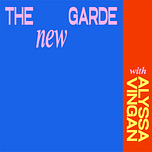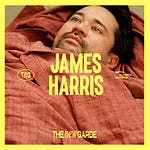CW: This episode contains discussion of disordered eating, body image, and weight loss.
If you’ve spent any amount of time scrolling TikTok or X (formerly known as Twitter) over the last several months, you’ve likely come across some version of “thinspo” — whether in the form of low-calorie “What I Eat in a Day” videos or before-and-after weight loss photos — even if you’re not seeking it out. Because we’re at the mercy of the algorithm, this imagery is almost impossible to avoid, which is dangerous for people of all ages. Ruthie Friedlander, the founder of At Large Agency and co-founder of The Chain — a non-profit organization that provides peer support for folks working in the fashion and entertainment industries who are struggling with or recovering from an eating disorder — drops by this week to discuss the reemergence of ED culture on the internet, on the runway, and in media. Tune in for Ruthie’s insights on what it’s like to work in fashion while in active eating disorder recovery, how seeing this imagery consistently can negatively affect your psyche and how you feel about yourself, why marketing buzzwords like “detox” and “clean” are harmful, how to tell when you’re seeing ED behavior hidden under the guise of “wellness,” whether brands and marketers have a responsibility for the images that are projected out to their customers via social media, why Ozempic has become normalized so quickly in the entertainment community and beyond, and where you can turn for help if you or a loved one is struggling with the onslaught of pro-ED content online.














Share this post